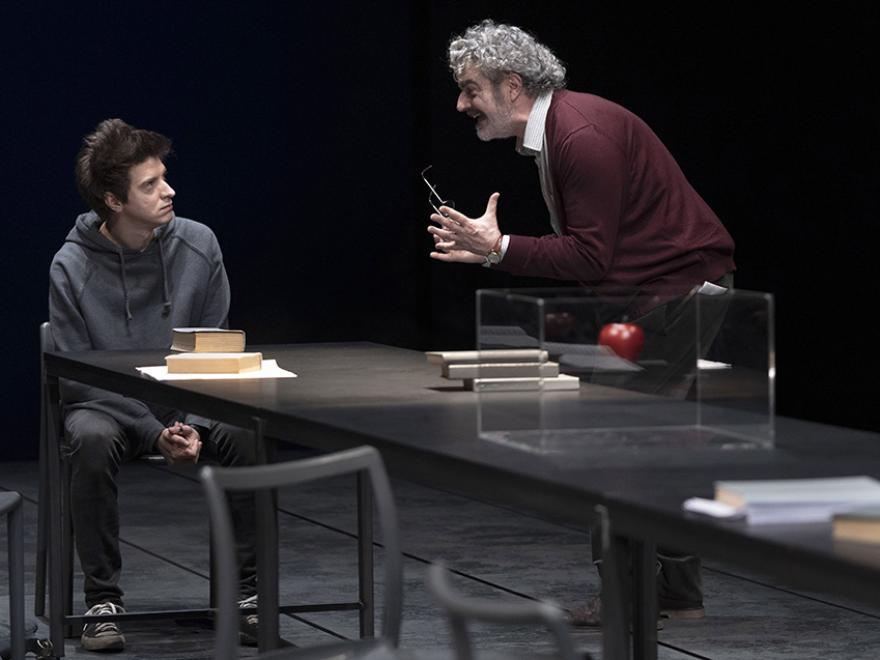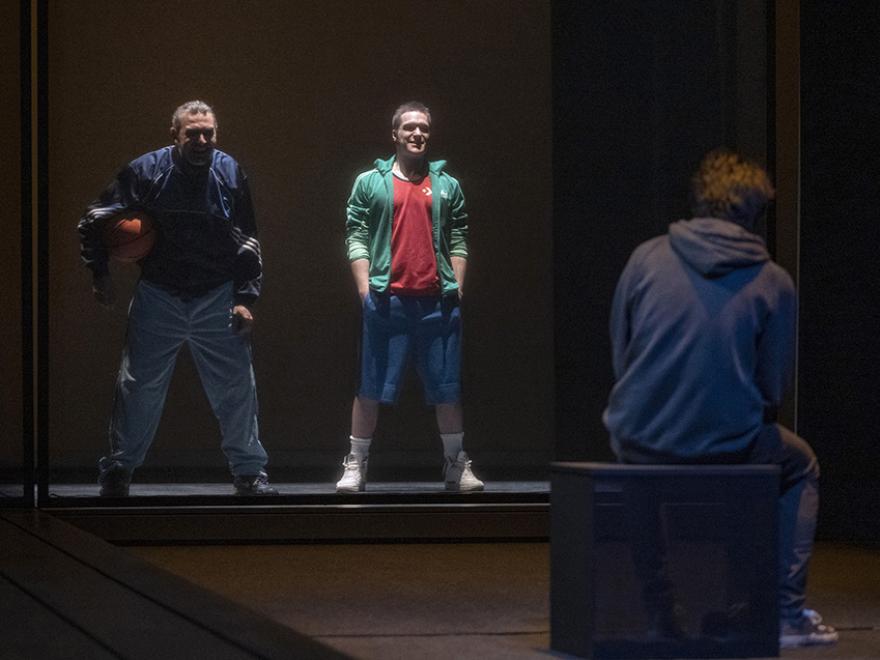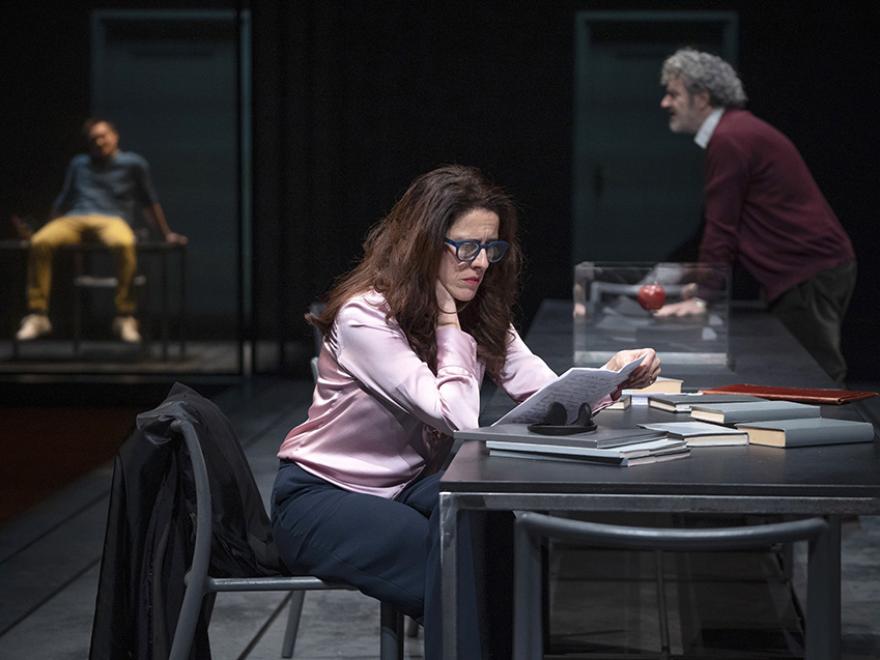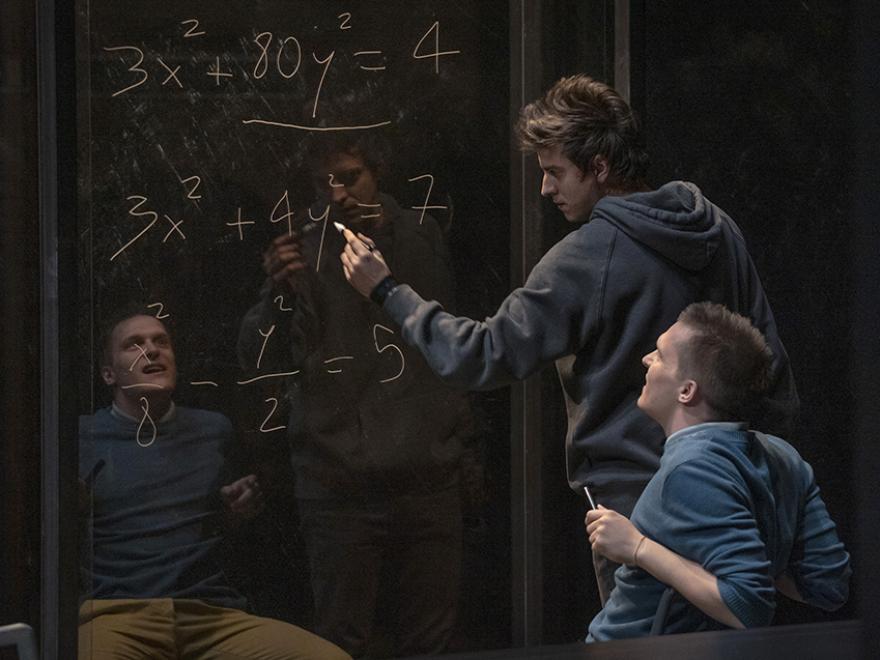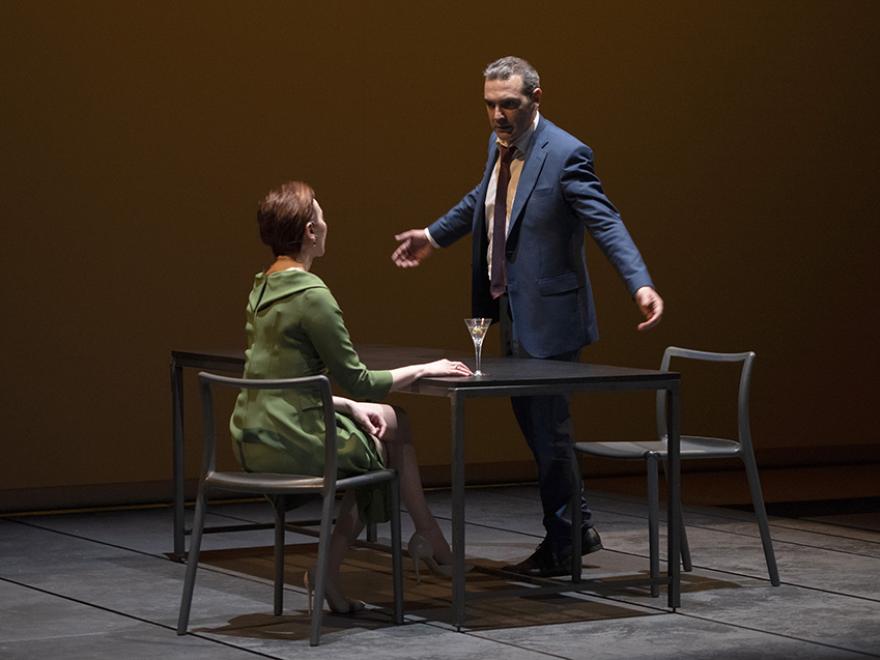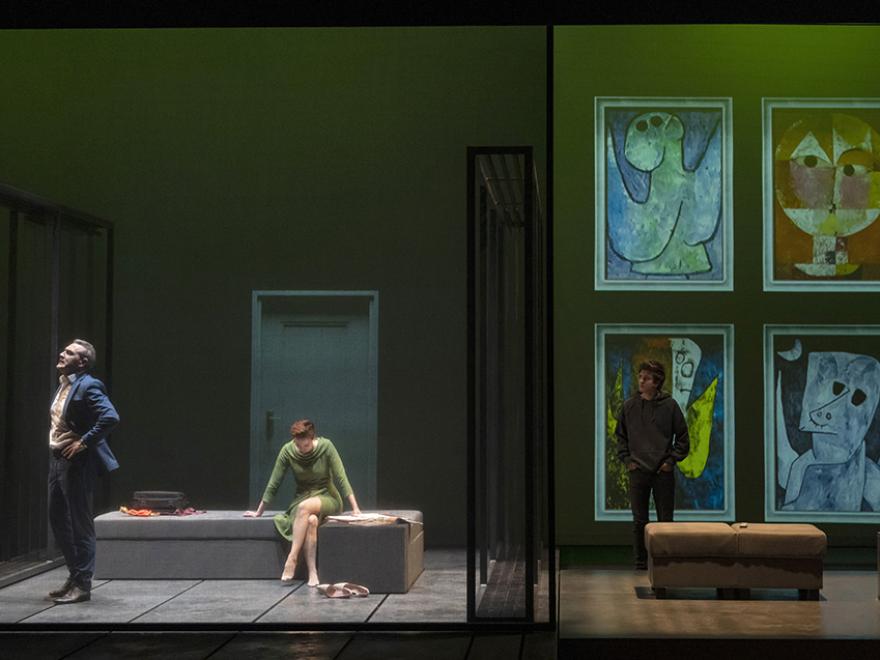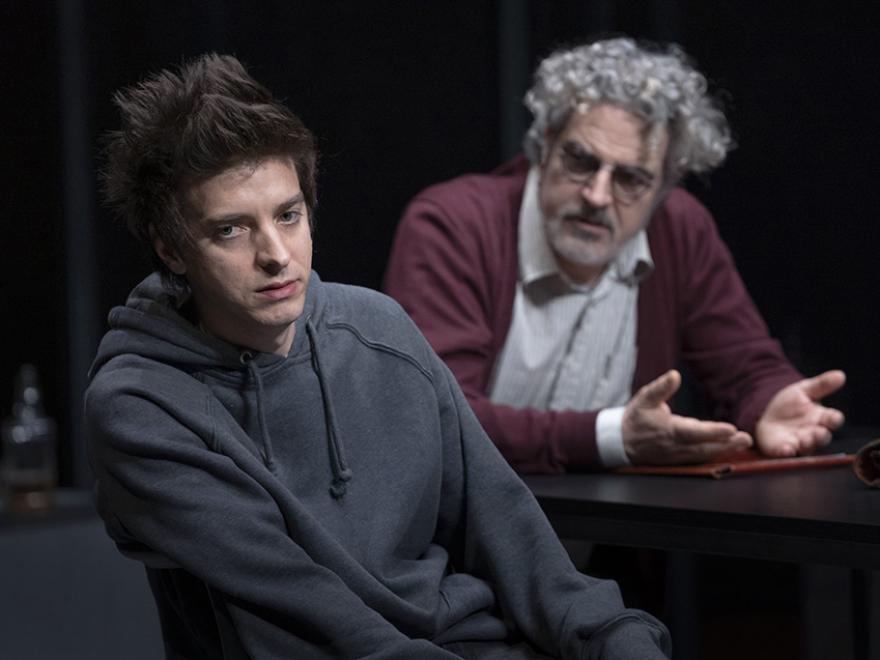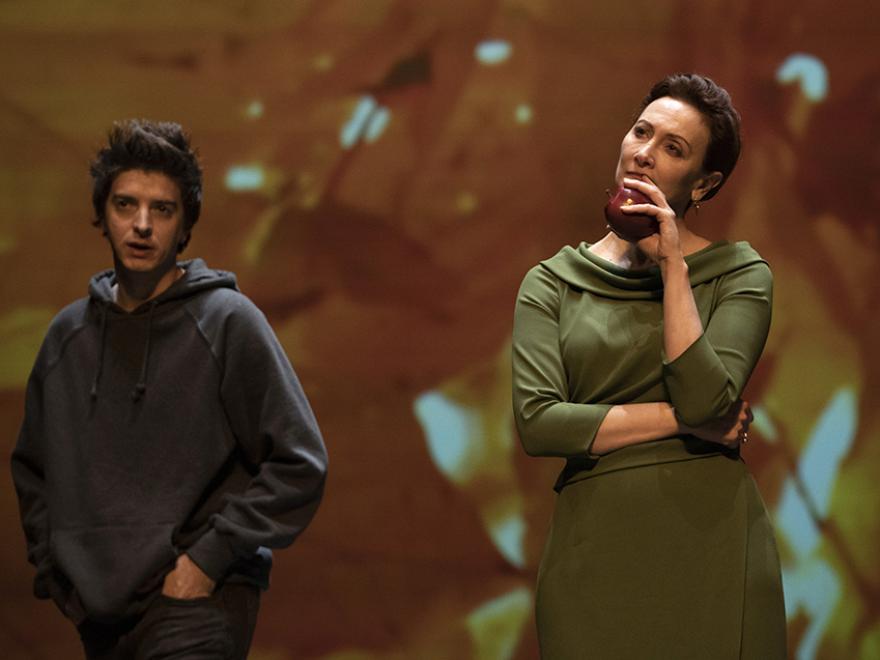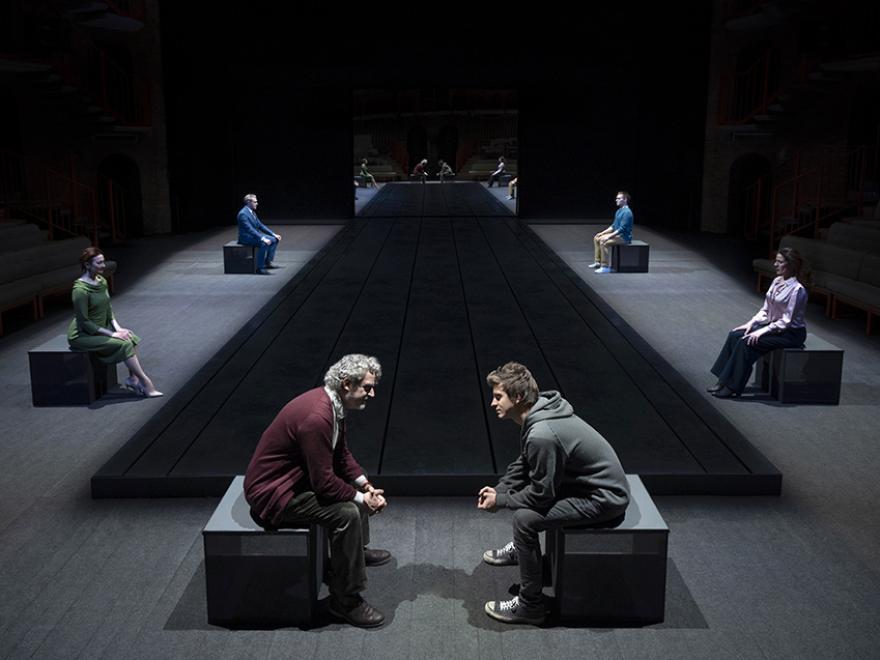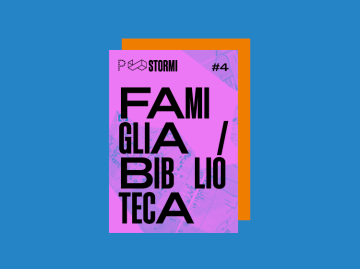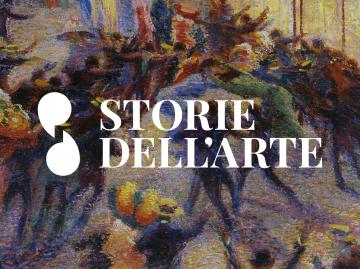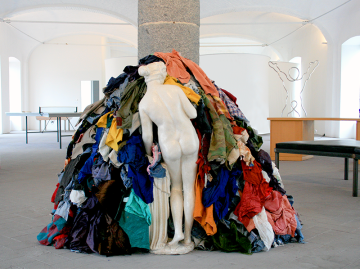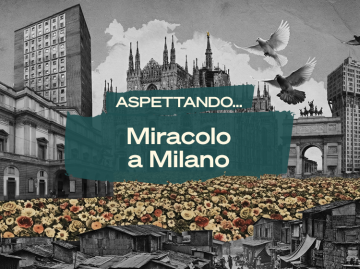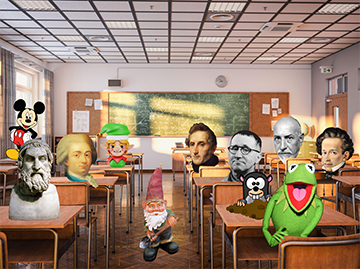Fiction or reality? Where do the confines lie? From the contemporary Spanish Juan Mayorga, Jacopo Gassmann stages a disturbing piece, full of ambiguity. To what extent to art and writing have the right to intrude into the lives of others?
The characters in Il ragazzo dell'ultimo banco are a literature professor in a high school, and one of his pupils. Claudio always sits right at the back of the class, he comes from a broken home, his mother left when he was a small child, and his father lives a shadowy existence. Apparently staying on the side-lines, Claudio reveals a particular talent for writing when doing a task he has been set by the teacher. He tells, in “episodes”, of the relationship with a class companion who he helps with his maths homework, and whose house he has started to visit regularly, a very upper-class home, with a family which is profoundly different from his own. Is what he describes true, or is he playing with his teacher? Marked by the narrative tension of a thriller, and immersed in a bitter satire, the piece describes a society where the economic gap is wide and all possibilities for social improvement are blocked. It is also a fascinating reflection on writing, on its pervasive power, on the ethical limits which are implicit, and the ghosts which populate literature.
An author for which Jacopo Gassmann nurtures particular affection, Mayorga, who was born in 1965 in Madrid, where he now lives, graduated in mathematics and physics, and taught for many years. He explains that his inspiration came from his career as a teacher: “A boy wrote in a test that he hadn’t studied because he was playing tennis and he was going to become a champion. I was immediately fascinated by the idea that a student could use a task in class to tell his teacher about his life”. “It is a piece which is to be read on various levels - explains Gassmann -. Balanced on the confine between reality and fiction, it plays on a narration of time which is rich in eclipses and a climax filled with psychological violence between the two main characters. The relationship between the professor and Claudio, which runs on parallel lines of father/son and teacher/student, gradually becomes an impassioned emotional and intellectual battle, which ends up on the edge of a precipice. Each character comes up against their own failures and a profound sense of loneliness. They all find themselves living their own existence by proxy: the professor through the talent of the mysterious boy,; the student in the, possibly imaginary, worlds that he creates. The question that arises on stage is to what point does art and writing have the right to enter the lives of others?”
Duration: two hours without interval
Learn more
Booklet
ReadThe characters in Il ragazzo dell'ultimo banco are a literature professor in a high school, and one of his pupils. Claudio always sits right at the back of the class, he comes from a broken home, his mother left when he was a small child, and his father lives a shadowy existence. Apparently staying on the side-lines, Claudio reveals a particular talent for writing when doing a task he has been set by the teacher. He tells, in “episodes”, of the relationship with a class companion who he helps with his maths homework, and whose house he has started to visit regularly, a very upper-class home, with a family which is profoundly different from his own. Is what he describes true, or is he playing with his teacher? Marked by the narrative tension of a thriller, and immersed in a bitter satire, the piece describes a society where the economic gap is wide and all possibilities for social improvement are blocked. It is also a fascinating reflection on writing, on its pervasive power, on the ethical limits which are implicit, and the ghosts which populate literature.
An author for which Jacopo Gassmann nurtures particular affection, Mayorga, who was born in 1965 in Madrid, where he now lives, graduated in mathematics and physics, and taught for many years. He explains that his inspiration came from his career as a teacher: “A boy wrote in a test that he hadn’t studied because he was playing tennis and he was going to become a champion. I was immediately fascinated by the idea that a student could use a task in class to tell his teacher about his life”. “It is a piece which is to be read on various levels - explains Gassmann -. Balanced on the confine between reality and fiction, it plays on a narration of time which is rich in eclipses and a climax filled with psychological violence between the two main characters. The relationship between the professor and Claudio, which runs on parallel lines of father/son and teacher/student, gradually becomes an impassioned emotional and intellectual battle, which ends up on the edge of a precipice. Each character comes up against their own failures and a profound sense of loneliness. They all find themselves living their own existence by proxy: the professor through the talent of the mysterious boy,; the student in the, possibly imaginary, worlds that he creates. The question that arises on stage is to what point does art and writing have the right to enter the lives of others?”
Duration: two hours without interval
Learn more
Booklet
ReadMeetings and insights
Credits
Piccolo Teatro Studio Melato
from 21 March to 18 April 2019
Il ragazzo dell’ultimo banco
by Juan Mayorga
translation by Antonella Caron
directed by Jacopo Gassmann
sets Guido Buganza, costumes Giada Masi, lighting Gianni Staropoli, movements Alessio Maria Romano
sound designer Lorenzo Danesin, video by Stefano Teodori
with (in alphabetical order) Pierluigi Corallo, Alfonso De Vreese, Fabrizio Falco, Pia Lanciotti, Danilo Nigrelli, Mariángeles Torres
a Piccolo Teatro di Milano – Teatro d’Europa production
Information and bookings
Telephone service 02.42.41.48.89
From Monday to Saturday 9.45 a.m. – 6.45 p.m.
Sunday 10.00 a.m. – 5.00 p.m.
Teatro Strehler
From Monday to Saturday 9.45 a.m. to 6.45 p.m.
Sunday 1.00 p.m. to 6.30 p.m.
On the evening of the performance the sale of tickets will close one hour before the performance begins.
Groups and organisations
For information on tickets and subscriptions for groups and organisations, and afternoon performances for schools and educational shows, please contact the Servizio Promozione Pubblico e Proposte Culturali.
Tel.02.72.333.216
e-mail:promozione.pubblico@piccoloteatromilano.it

